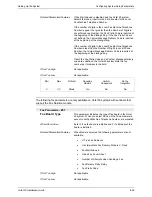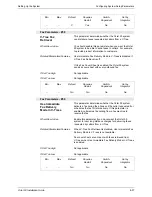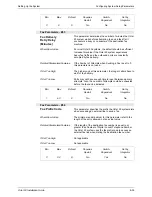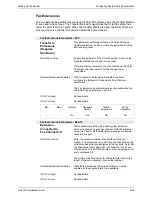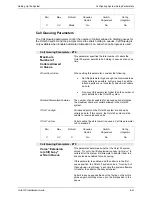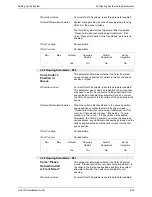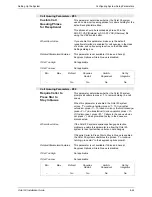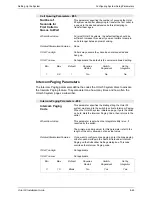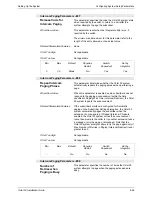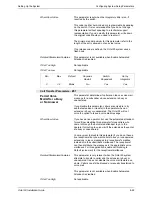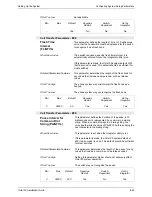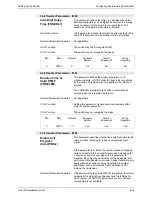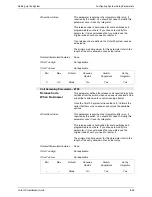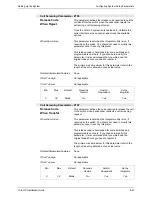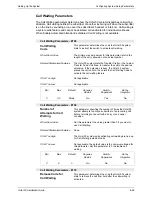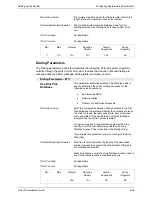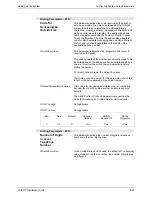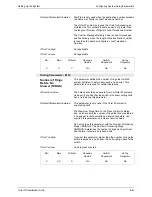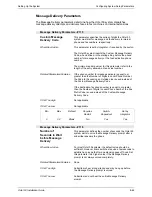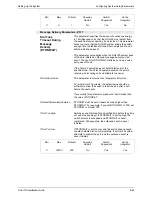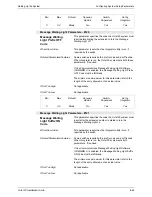
Setting Up the System
Configuring System Setup Parameters
Octel 50 Installation Guide
8-50
T
Tells the switch to use DTMF dialing
M Tells the switch to use MF dialing
P
Tells the switch to use Pulse dialing
Do not use
M
or
P
unless required by the switch. Once used,
all calls continue to be dialed using multifrequency or pulse
dialing until you shut down the Octel 50 system.
Codes within the Custom Transfer Code must be followed
by a
D
for call progress or an
N
for no call progress.
Otherwise, the codes are ignored.
If a release code is required on a busy, no answer, or
connect, an
R
must follow the
D
. The
R
instructs the
switch to get the code to connect or appropriate release
code. If a release code is required for a connect, the code
should immediately follow the in the Custom Transfer Code.
For example, if a switch requires a 1 to be dialed before the
extension to transfer the call as DID with call progress, the
Custom Transfer Code would be
&C11XDR
.
Related Parameters/Features
If no Custom Transfer Code is defined, the Octel 50 system
looks for a Transfer Prefix Code. If neither is defined, the
Octel 50 system uses a default that performs a hook flash,
pauses, dials the extension number with call progress, and
then looks for the appropriate release code.
If the Custom Transfer Code includes an
R
, the switch looks
for the appropriate release code. Release codes allow the
Octel 50 system to pull calls back from the switch for
routing. There are basic release codes for no answer and
busy and feature-specific release codes for call screening,
call waiting, intercom paging, and message waiting lights. If
no release codes are defined, the Octel 50 system uses an
ampersand.
If the Custom Transfer Code does not include an
R
, a flash
hook is used.
This parameter is not available when Enable Automated
Attendant is disabled.
If Set Too High
Not applicable.
If Set Too Low
Not applicable.
Min
0
Max
32
Default
Blank
Requires
Restart
No
Switch-
Dependent
Yes
Set by
Integrator
Yes
Call Transfer Parameters - #94
Number of
Seconds to
Delay before
Transferring
This parameter defines the number of seconds the Octel 50
system is off hook after receiving a call before it sends the
transfer code to the switch.
When/How to Use
The default should be adequate for most Octel 50 systems.
However, if you experience call transfer problems, try
increasing this parameter.

